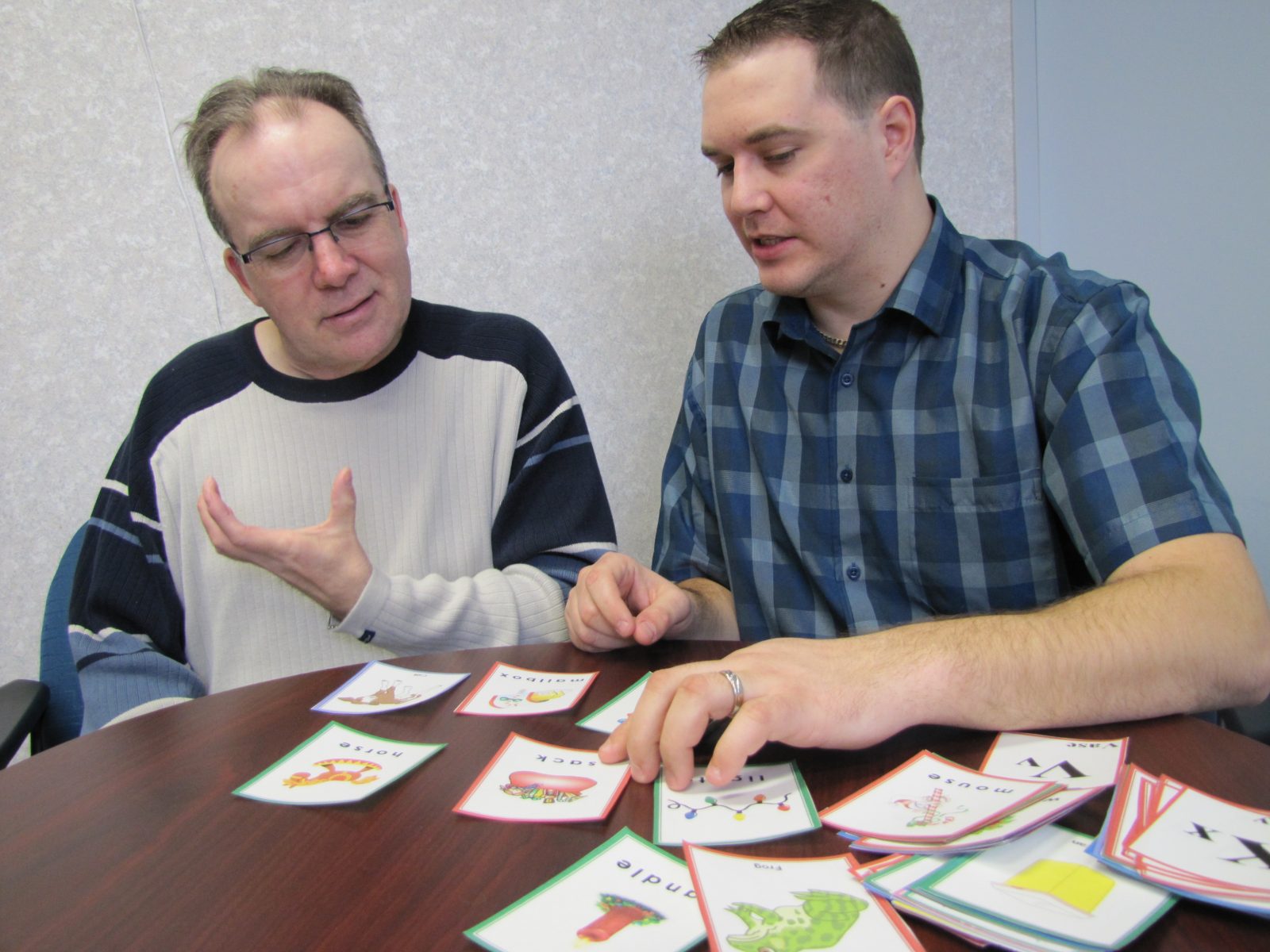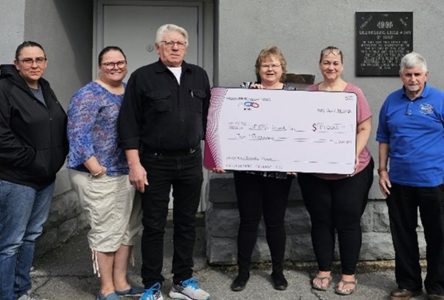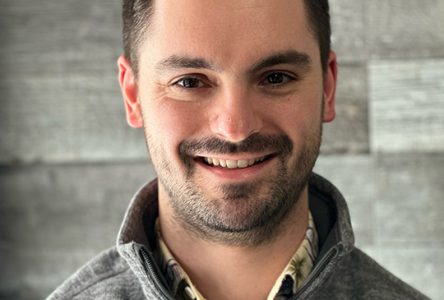CORNWALL, Ontario – Tom Langill can tell you so much, by barely saying a word at all.
The stroke survivor has spent the last six years learning to speak again, thanks to aphasia, a condition that can range from trouble finding words to losing the ability to speak, read, or write.
It does not affect intelligence. Tom understands exactly what you’ve said, and in his mind knows what he wants to say – but the message gets scrambled when he opens his mouth to articulate a thought.
“Before…smoke, smoke, smoke,” Tom said in describing what likely led to the stroke at just 49. “But now – quit.”
Tom used to be a salesman in Alberta prior to the stroke. He sold water filtration equipment for a living and in his own words will tell you it was a lot of “la la la” – vernacular for suggesting he did a lot of talking to make a living.
“But now, no,” he adds.
The stroke also left him with partial paralysis to his right side – making him a lefty almost immediately.
But Tom didn’t use his condition as an excuse to loaf around. When he returned to the area from out west he began making regular trips to the aquatic centre in Cornwall to strengthen his body – and it’s where a chance meeting with people from the local office of the Vista Centre led to a sharpening of his mind.
The Vista Centre, located at 55 Water Street, is a non-profit agency that offers support services for adults with acquired brain injuries, like strokes.
In addition to offering day programs for adults that focus on fitness (including swimming) there is an “adjustment group” that provides patients and their families with strategies to cope with the injuries, said Andrew McKinney, a member of the Cornwall office.
“We met Tom and he started asking for information about our centre,” said McKinney.
That was in August.
Since then, Tom has made huge leaps forward in his ability to articulate thoughts, improve his speech, memory and his ability to walk.
It was suggested to him that Vista has made a huge improvement on his quality of life.
“Bingo!” he thundered, slapping his hand on the arm of a couch to emphasize his point. “One-hundred-per cent! Holy cow! Really! Wow!”
His father Len, who helps in getting Tom to appointments at places like Vista, said conversing with his son has taken a giant leap in the last few months.
“The improvement we have noticed within the family – it’s got to be 50 per cent better,” he said. “Tom and I can converse on the phone about sports and stuff.”
Tom said he is focusing on the future and making steady progress.
“A little bit better…slowly,” he said.
McKinney said the agency focuses on the individual needs of its clients, and long-term support programs are often necessary and are provided as long as there is potential for achieving goals.
“We (introduced) a program here, because there is a need,” he said.
McKinney said in many cases the visitors to the centre look forward to not only sharpening their skills, but interacting with people.
“It’s not just for working on memory and speck, it’s a social group,” he said.
Tom agrees, with gusto.
“Oh my god! Yes!”
For more on Vista, click here.



